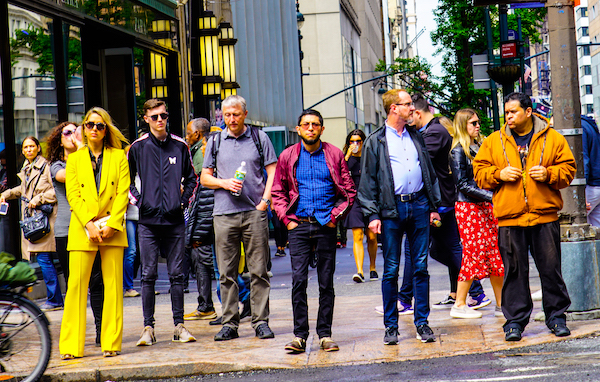A question of generation? – Conflicts between generations
INKOVEMA Newsletter
Mediation and conflict management
# 45
Focus topic:
– A question of generation?! – Conflicts between generations
– Old and young
– Stories about generations
– Generational conflicts in the world of business and labour
Old and young
„What kind of world do we want to live in? In a world in which „old“ and „young“, „rigid“ and „mobile“, „full“ and „hungry“ and „open“ and „closed“ hostile to each other, between people and within individual people themselves? Or in a living now in which all these poles interact dynamically instead of neutralising each other? But we cannot achieve this interaction by merely philosophising about it. We need shared spaces, forums and institutions, both analogue and digitalwhere the old and the young, the agile and the rigid, the full and the hungry mingle. Where the same topics and problems are discussed and practically tackled from both young and old perspectives…“ from „The rebel in us“ by Rebekka Reinhard and Tomas Vasek, Hohe Luft, N.6/2019 Read more
They feel neither the Generation X belonging, but also not as Millenial? Then you are a XENNIAL, thinks Amy Stock.
- Xennials: Micro-Generation Born Between 1977-1983 Link
- Xennials: Introduction on Mamamia Link
- Generation Z: All about Generation Z by Prof Christian Scholz. www.die-gen-eration-z.de (with many more links.)
- Generation Z: A meta-study by TripleATeam. Link
- Generation Z: …more pessimistic than ever before. (Comparisons left open are always so ambiguous ;-)! Link
- „Ok, Boomer! “ – was the answer at the social platform TikTokafter a white-haired man in a baseball cap and polo shirt says: „The Millennials and the Generation Z have the Peter Pan syndromethey never want to grow up “ Link
Generational conflicts in the world of business and labour
- Generations XYZ – generations on the labour market. Link
- 6 Podcasts, which describe the identified generations in detail, characterise them with a view to the world of work – and elaborate on the differences between these generations. Link
- Expectations of Generation Z to the labour market. Link
- Short contribution to the Conflict situation in organisations in the business and working world, which deals with the „generation question“. Link
- Contribution to the special Conflict between generations. Link
The generational myth
Martin Schröder: The generational myth, Kölner Zeitschrift für Soziologie und Sozialpsychologie 3/2018
Martin Schröder has done the work of systematically analysing the literature on generational differences and has found that nothing has been systematically researched and evaluated here, but merely based on gut feeling and experience. Instead of loose (stories, associations), there’s with him strict thinking (logic, science).
- The generational myth (researchgate online)
- The generational myth (PDF version)
- Interview podcast (Deutschlandfunk)





Leave A Comment